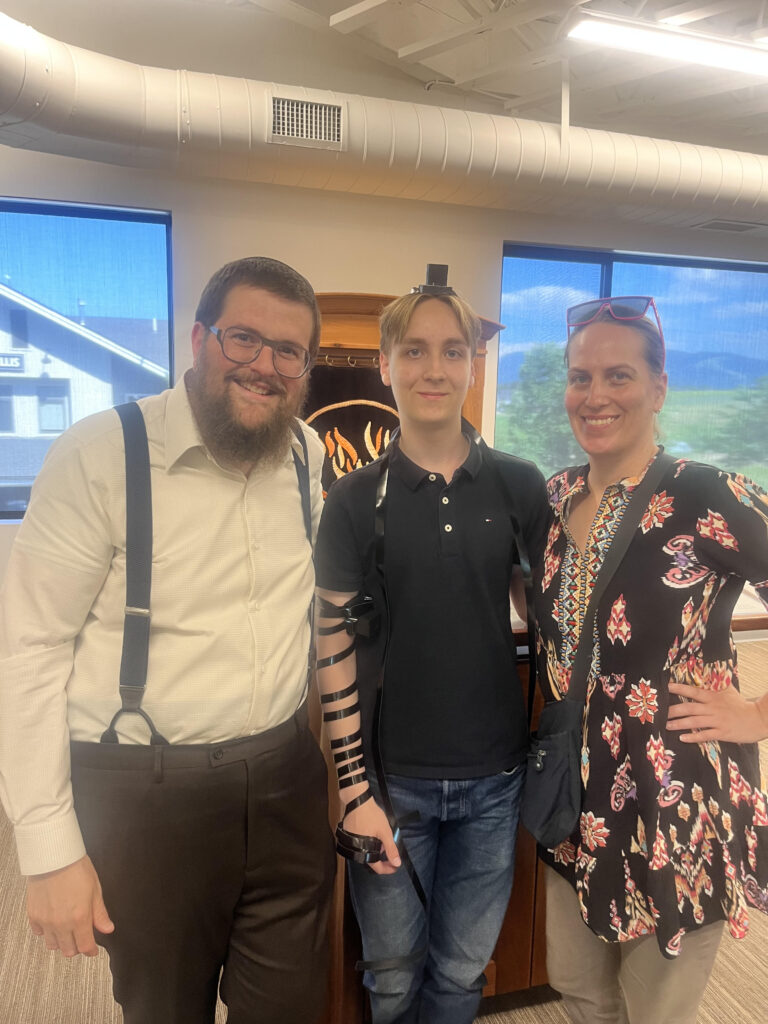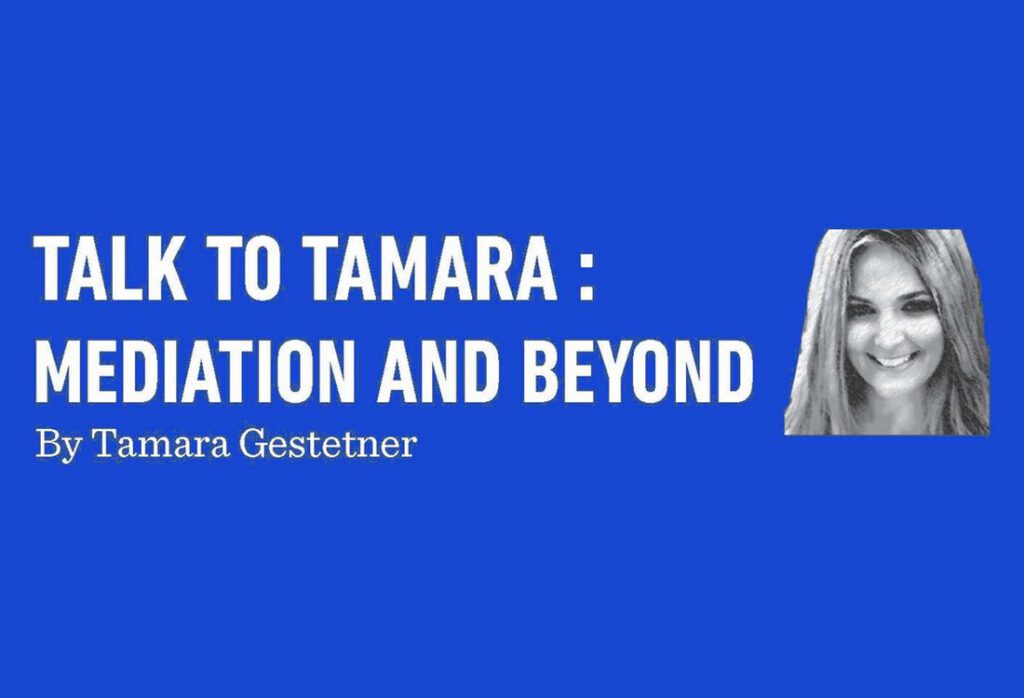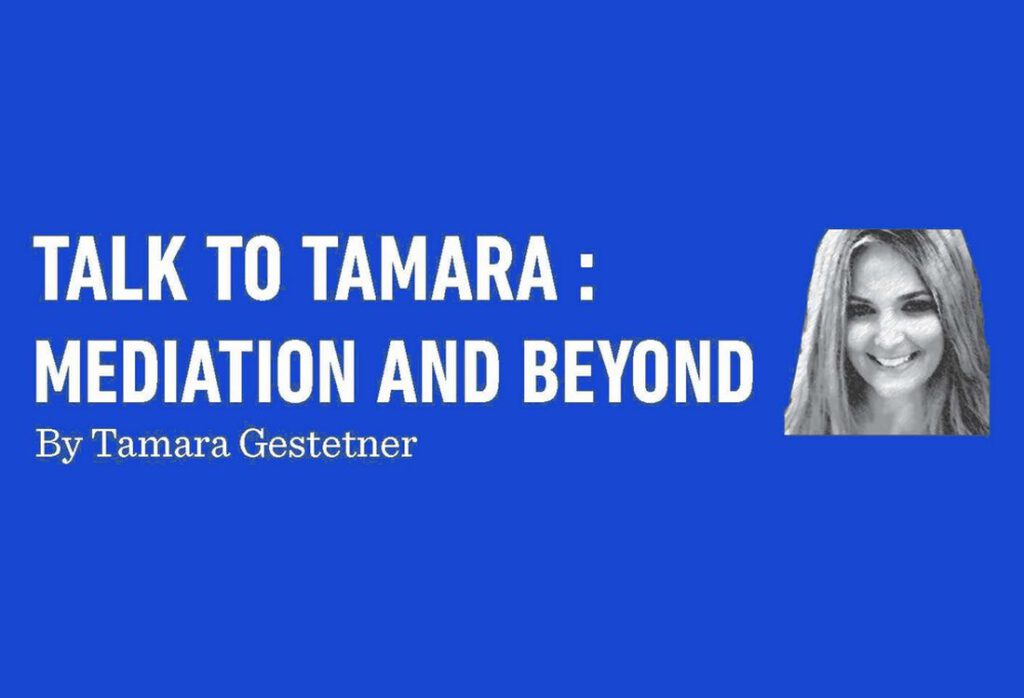Musings Of A Shliach From Montana
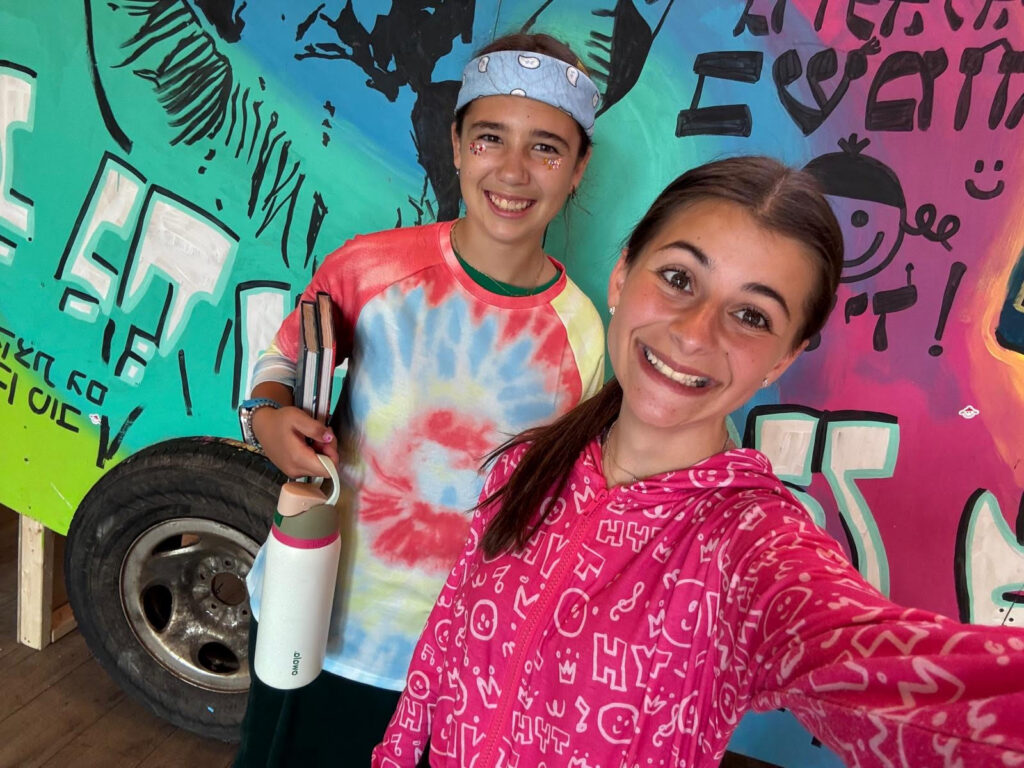
Zeesy and Tova Wolfson rocking it at Camp Simcha
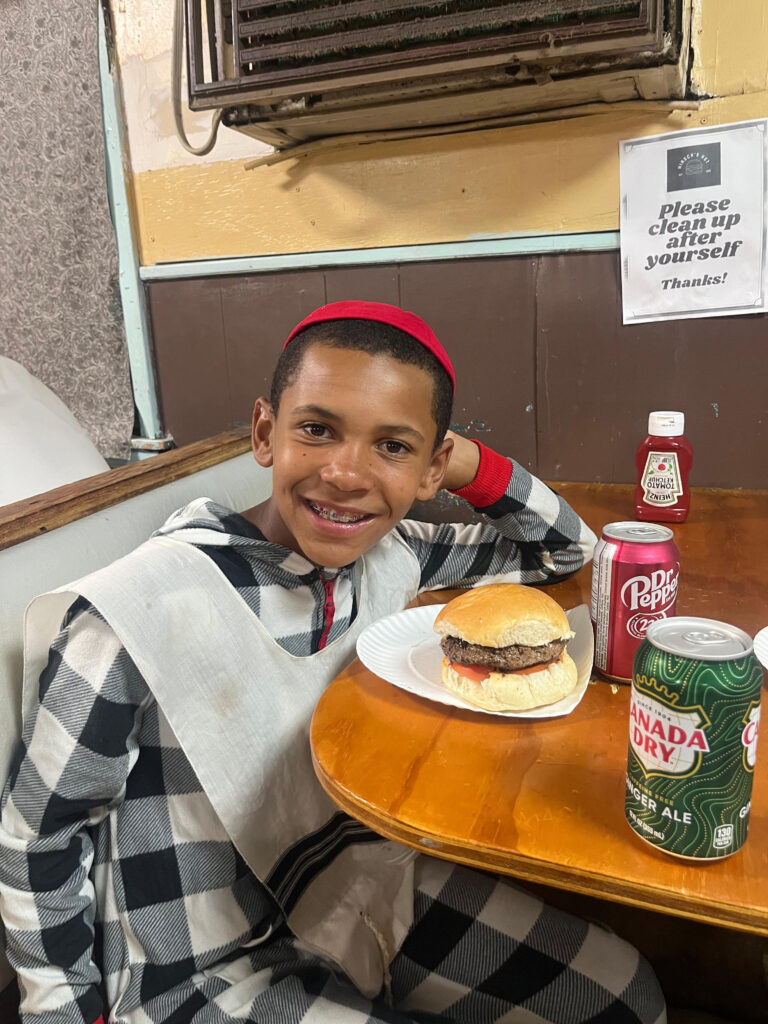
Menny enjoying a burger at the canteen at CGI in Parksville
My kids are all over the place.
Summers are a complicated season. It’s great that the kids are going to camp, but when you consider how far we live from the camps, the logistics for the buses can be complicated. Shluchim who live in remote places, especially from Montana to Mississippi to Saskatchewan to the Cayman Islands, must get their kids to camp, especially the younger ones, and it’s a huge operation!
I have occasionally sent them as “unaccompanied minors” at times when it was impossible to take them, but that can be complicated too.
Currently, Menny is having a blast at Camp Gan Israel in Parksville; Chaya is enjoying a teenage Chabad girls’ camp in Cabo S. Lucas, Mexico; Chana Laya is spending a week at Camp Gan Israel in Kalispell, Montana, while staying with her aunt and uncle Rabbi Shneur and Chana Wolf and her wonderful cousins; and Zeesy arrived on Wednesday to her favorite place on earth, Camp Simcha. I recently shared with Rabbi Sruli Fried of Chai Lifeline in Lakewood that as a parent, I am genuinely speechless, finding no adequate words to express the gratitude that Chavie and I feel towards Camp Simcha. Zeesy waits for this experience all year around, and the staff, including her counselor, Charna Rochel Cohen and many of the Five Towns girls (including the amazing Tova Wolfson, who looks out for Zeesy), give her so much love that it brings me to tears of joy and hakaras hatov. There’s nothing a parent wants more for their children than the feeling of happiness, and Camp Simcha does that for Zeesy in amazing ways.
In this week’s Parashat Pinchas, we read about the daughters of Tzelafchad demanding a parcel of land in Israel. “Why should our father’s name be deprived among his family because he has no son? Give us a possession among our father’s brothers.” They felt left out, and let’s face it, nobody feels good about being excluded. So, instead of kvetching and rebelling behind the scenes, gossiping and creating discord, they were open and honest, demanding an inheritance in Eretz Yisrael. Moshe brought their case to Hashem and Hashem agreed that they, along with all families that have only daughters, should receive an inheritance alongside their fellow tribesmen.
As I learned the parashah, I kept thinking of those who feel left out, abandoned by their community, and ignored by those who are meant to be there for them. Too often, it’s not anyone’s fault. No one is “out to get them,” it’s just that they slip through the cracks since there is no structure for this type of situation, and it leaves many people hurting on the inside. It’s for this reason that organizations like Chai Lifeline were founded. One caring man, Rabbi Simcha Scholar, saw the need for a welcoming space for children who are dealing with medical ailments or special needs and created his wonderful camp so they can feel loved and welcomed, and a part of an amazing community.
In addition, the daughters of Tzelafchad taught us a spiritual lesson in holiness. They were respectful, understanding, and yearned for a piece of holiness, a piece of Israel. They reminded us that Judaism is not something we should do by rote, but something that we should be excited about, something we should fight for, something we should be enthusiastic about, something that should enliven our soul, so we should want more and more and more of it. We should never be satisfied with “vanilla Judaism.” We should yearn for and work towards a Yiddishkeit that is meaningful, invigorating, and uplifting. Personal spiritual growth is something worth pursuing and Tzelafchad’s daughters showed us how it’s done.
On Shabbos Parashas Chukas we hosted Houstonian David Goldman and his wife Wendy. He is the brother of my dear friend, Amir Goldman, who together with his wife Stacey are pillars of the Philly Jewish community. This is a WhatsApp message that David sent to me after his Shabbos in Bozeman. It warmed my heart and I asked his permission to share it, hoping it will warm yours too:
Dvar Torah: Hashavat Aveidah: Returning What Is Truly Lost
Over 20 years ago, I was a new ba’al teshuvah. I walked into a kosher restaurant and noticed a small advertisement offering to teach how to learn Gemara. That simple sign led me to Rabbi Brander’s Kollel Boker, where I began learning the second perek of Bava Metzia. That moment marked the start of my on-again, off-again journey with Bava Metzia…
In Perek Sheni of Bava Metzia, the Mishnah explores the mitzvah of hashavat aveidah, the obligation to return lost objects. The Torah teaches: “You shall surely return them to your brother.” (Devarim 22:1)
Chazal understand this verse to mean that we are obligated to return lost property, even if it requires significant inconvenience or exertion on our part.
But the Lubavitcher Rebbe taught a deeper message: Just as there are lost objects, there are also lost souls—neshamos who have strayed from their purpose, lost touch with their essence, or become distant from Torah and mitzvot.
The mitzvah of hashavat aveidah applies not only to wallets and donkeys, it applies to people. When you encounter a fellow Jew who seems disconnected or distant, the Torah demands that you don’t turn away. You help them return.
The verse doesn’t say “return it,” i.e. the object, but rather to “return them,” hinting at the souls of the people who are also “lost” and need to be brought back. The Torah’s use of the double language “hashev teshivem,” teaches that this process of returning the lost object may require persistence, diligence, and multiple efforts.
Just last week, my wife and I celebrated our 24th wedding anniversary with a trip to Bozeman, Montana. The breathtaking landscapes of Bozeman and Yellowstone National Park inspired our souls and reminded us of Hashem’s greatness.
But what moved us even more deeply was the Shabbat we spent with the Chabad shliach in Bozeman. He has given up the comforts of living in a larger frum community in order to seek out lost neshamos and bring them closer to Hashem.
I was especially inspired by the Shabbos lunch we spent with an aunt whom I had not seen in 30 years. I had the opportunity to sit with my 86-year-old aunt, who has lived in Montana for many years. She married a non-Jew and spent most of her adult life as a practicing Catholic. Her husband has since passed on, and in recent years, she has slowly reconnected with her Jewish roots through her connection to Rabbi Bruk.
Though she now struggles with memory issues, she repeated to us—again and again—that she wished she had raised her children as Jews. It was clear that, even now, her soul was seeking its way back. She has been given the gift of a return—perhaps late in life, but profoundly meaningful.
You don’t have to move to Bozeman, Montana to change someone’s life.
We who live here in Houston—what I like to call our “beracha bubble,” also have opportunities every day to help others reconnect with Hashem. Sometimes the person who feels lost is not far away or unfamiliar, they may be sitting right next to us in shul, or even within our own families.
I know personally how many people in this community have uplifted and supported me in my own spiritual growth. We all have the power to return a soul—to help someone feel less alone, to help them find their way back to Torah, mitzvot, and meaning.
And often, all it takes is something simple:
- A smile
- An invitation
- A few minutes of learning
- A heartfelt conversation
The mitzvah of hashavat aveidah reminds us that our responsibility to each other goes far beyond property. It extends to the soul. May we all be zocheh to not only find our own way to Torah, but to lovingly, patiently help others find theirs.
The Rebbe, zt’l, and David, are right.
There is a world of Jews who feel lost, some due to physical challenges, some due to emotional and mental challenges, and some, as David wrote so beautifully, due to spiritual challenges. Unlike Tzelafchad’s daughters, many of those who feel alone don’t know how to fight to become part of our community. It’s incumbent upon us to be proactive and find them, make them feel at home, create programming to combat their form of loneliness, and ensure that they feel part of their Jewish community.
At Chabad Centers, our role is not just to bring Yiddishkeit to far-flung places and serve the locals and the many visitors; it’s also to ensure that every Jew who shows up in our cities or states feels at home and knows he is part of our family. Last week, Cara and her son Ben were visiting from Helsinki. They happen to know my colleagues Rabbi Benyamin and Ita Wolff, and so they stopped by for a visit. It was so nice for me to meet proud Jews from Finland, and I know it was nice for them to connect with their fellow Jews while thousands of miles away from home. Of course, I laid tefillin with Ben and gave them tzedakah to be a “shliach mitzvah,” a messenger of mitzvah to give tzedakah when they get back to Finland, making their entire trip home a mitzvahmission.
No lonely Jews. Not now, not ever.
We are family. n
Rabbi Chaim Bruk is co-CEO of Chabad Lubavitch of Montana and spiritual leader of The Shul of Bozeman. For comments or to partner in our holy work, e-mail [email protected] or visit JewishMontana.com/Donate.





